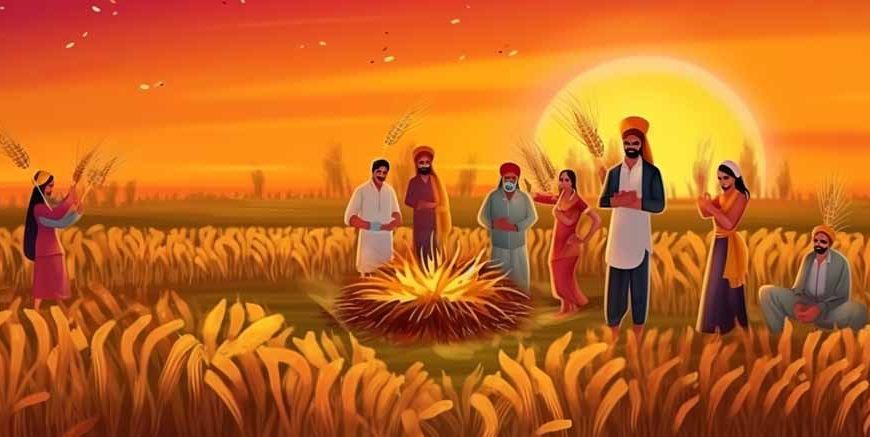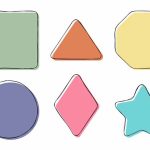From crafting decorations and cooking festive treats to sharing stories about the festival, there are countless ways in which parents can celebrate harvest festivals in India with their kids. In this article, we will discuss seven fun and interesting ways parents can not only teach their kids about harvest festivals in India but also engage them in the celebrations.
What Do You Mean by Harvest Festival in India?
Harvest festivals in India are vibrant occasions that celebrate the end of the harvest season. These festivals are deeply rooted in regional traditions and offer parents a great opportunity to teach their children about India’s rich culture. Here’s a list of harvest festivals in India:
- Makar Sankranti
- Pongal
- Lohri
- Baisakhi
- Onam
- Bihu
- Vishu
- Ugadi
It is celebrated in mid-January across Gujarat, Maharashtra, Karnataka, and Andra Pradesh.
Just like Makar Sankranti, Pongal is also celebrated in mid-January in Tamil Nadu.
Lohri is also celebrated in mid-January across Punjab and Haryana.
It is generally celebrated in Punjab and Haryana on April 13 or 14 every year.
It is celebrated in August or September across Kerala.
It is celebrated in mid-April in Assam.
It is celebrated on April 14 or 15 across Kerala.
It is celebrated in March or April across Andhra Pradesh, Telangana, and Karnataka.
Fun Activities to Do with Your Children During Harvest Festivals in India
Indian harvest festivals are colourful celebrations that honour the hard work of farmers and express gratitude for a bountiful harvest. These festivals offer an excellent opportunity for parents to bond with their children while teaching them about the country’s rich traditions. Here are some fun and exciting activities you can do with your little one during harvest festivals.
- Cook and Learn
- Quiz Your Little One
The best way to learn more about the harvest festivals of India is through food. You can make some traditional sweets like sesame ladoos for Makar Sankranti or payasam for Onam with your little one. While cooking, you can share your personal stories about how you used to celebrate these festivals with your parents. This activity is not just fun but also creates lasting memories.
Pique your child’s curiosity with a fun-filled harvest quiz, where you ask questions, and they find answers. You and your little one can bond over shared knowledge and rekindle your childhood memories while learning about India’s harvest festival. Moreover, quizzes are a great way to sharpen your kid’s memory and cognitive thinking skills. Here are some quiz questions you can ask your little one:
- When is Makar Sankranti celebrated?
- Which dish is traditionally prepared during Pongal?
- What is the main activity during Lohri?
- Which harvest festival is famous for its grand feast called Onasadya?
- In which state is the festival of Bihu celebrated?
- Which harvest festival involves boat races as part of the celebrations?
- What does the overflowing pot of milk during Pongal symbolise?
- Which festival marks the Punjabi New Year?
- What is the name of the colourful patterns made on the ground during Pongal?
- What is Lohri traditionally associated with?
- Which festival is known for its folk dance called Bhangra?
- What is the main crop harvested during the festival of Bihu?
- Which festival is celebrated in Maharashtra to honour farmers?
- What is the traditional sweet prepared during Lohri?
a) December 25th b) January 14th c) August 15th d) October 2nd
Answer: January 14th
a) Sakarai Pongal b) Dhokla c) Gulab Jamun d) Dal Bati Churma
Answer: Pongal
a) Flying kites b) Lighting bonfires c) Playing Holi with colours d) Worshipping the moon
Answer: Lighting bonfires
a) Pongal b) Onam c) Baisakhi d) Ugadi
Answer: Onam
a) Kerala b) Assam c) Punjab d) Tamil Nadu
Answer: Assam
a) Pongal b) Baisakhi c) Onam d) Lohri
Answer: Onam
a) Happiness b) Prosperity and abundance c) Unity d) Good health
Answer: Prosperity and abundance
a) Lohri b) Baisakhi c) Holi d) Diwali
Answer: Baisakhi
a) Rangoli b) Kolam c) Mandala d) Alpana
Answer: Kolam
a) The end of the harvest season for sugarcane b) The New Year for Tamilians c) The blooming of mustard flowers d) The worship of the sun
Answer: The end of the harvest season for sugarcane
a) Pongal b) Baisakhi c) Onam d) Bihu
Answer: Baisakhi
a) Wheat b) Rice c) Sugarcane d) Maise
Answer: Rice
a) Gudi Padwa b) Lohri c) Makar Sankranti d) Ugadi
Answer: Makar Sankranti
a) Payasam b) Til Laddoos (Sesame seed laddoos) c) Modak d) Puran Poli
Answer: Til Laddoos
- Get Creative with Crafts
- Involve Them in Preparations
- Assign simple jobs like peeling bananas, counting fruits, or setting up the dining table.
- Teach them how to fold and organise decorations or mix ingredients for sweets.
- Let Them Choose Their Festive Outfit
- Explain the Importance of Festivals
- Tell them how Makar Sankranti in India celebrates the transition of the sun into Capricorn and the importance of longer days for crops.
- Explain the significance of the Onam festival in India as a homecoming celebration of King Mahabali.
- Highlight the community bonding during the Lohri festival in India around bonfires.
- Plan the Festive Menu Together
Spark your child’s artistic side by making festival-themed crafts. For instance, you can make kites for Makar Sankranti using colourful paper or design a kolam for Pangal.
Embracing the festival with arts and crafts encourages creativity in your little one. It also gives them a way to express what they have learned about the festivals. Moreover, creating something together lets them visualise the celebrations and understand their deeper meanings.
Involving your child in small tasks during festival preparations keeps them engaged and boosts their confidence. Here’s how you can do it:
These little activities make them feel valued and also aid in their cognitive and motor skill development. Moreover, it fosters independence and helps them feel like valued contributors to the celebration.
Letting your child pick their outfit is a great way to develop their decision-making skills. You can guide them in choosing traditional attire that reflects the essence of the festival. Whether it’s a kurta-pajama for boys or a lehenga for girls, traditional outfits help kids connect with cultural values. Just make sure the attire is comfortable and explain how dressing up traditionally is a way to honour our heritage.
Stories are powerful tools for teaching. Sit with your child and explain why we celebrate each harvest festival. For example:
Also, answer their questions patiently, encouraging them to think critically and develop a deeper understanding of cultural traditions.
Food is the heart of any festival, and involving your child in planning the menu can make the celebration extra special. Together, decide what dishes to prepare. Ask for your child’s help in garnishing dishes or setting up the dining area. The sense of responsibility and joy they feel is unmatched.
Summing Up
In the end, harvest festivals in India are more than just celebrations—they are life lessons wrapped in joy. And as a parent, these festivals are a great way to celebrate your heritage and the values you want to pass on to your children.
Looking for more fun and exciting ways to nurture your child’s understanding of culture and values? Check out our blog- Top 5 Indian Folk Tales For Kids With Moral Lessons. These stories not only engage your child’s imagination but also help instill virtues like kindness, honesty, perseverance, and respect for others. You can also check out our EuroKids Blog for more insightful and fun articles to support your baby’s growth, health, and learning.
Additionally, check out EuroKids Preschool—the perfect foundation to start your little one’s learning journey!















